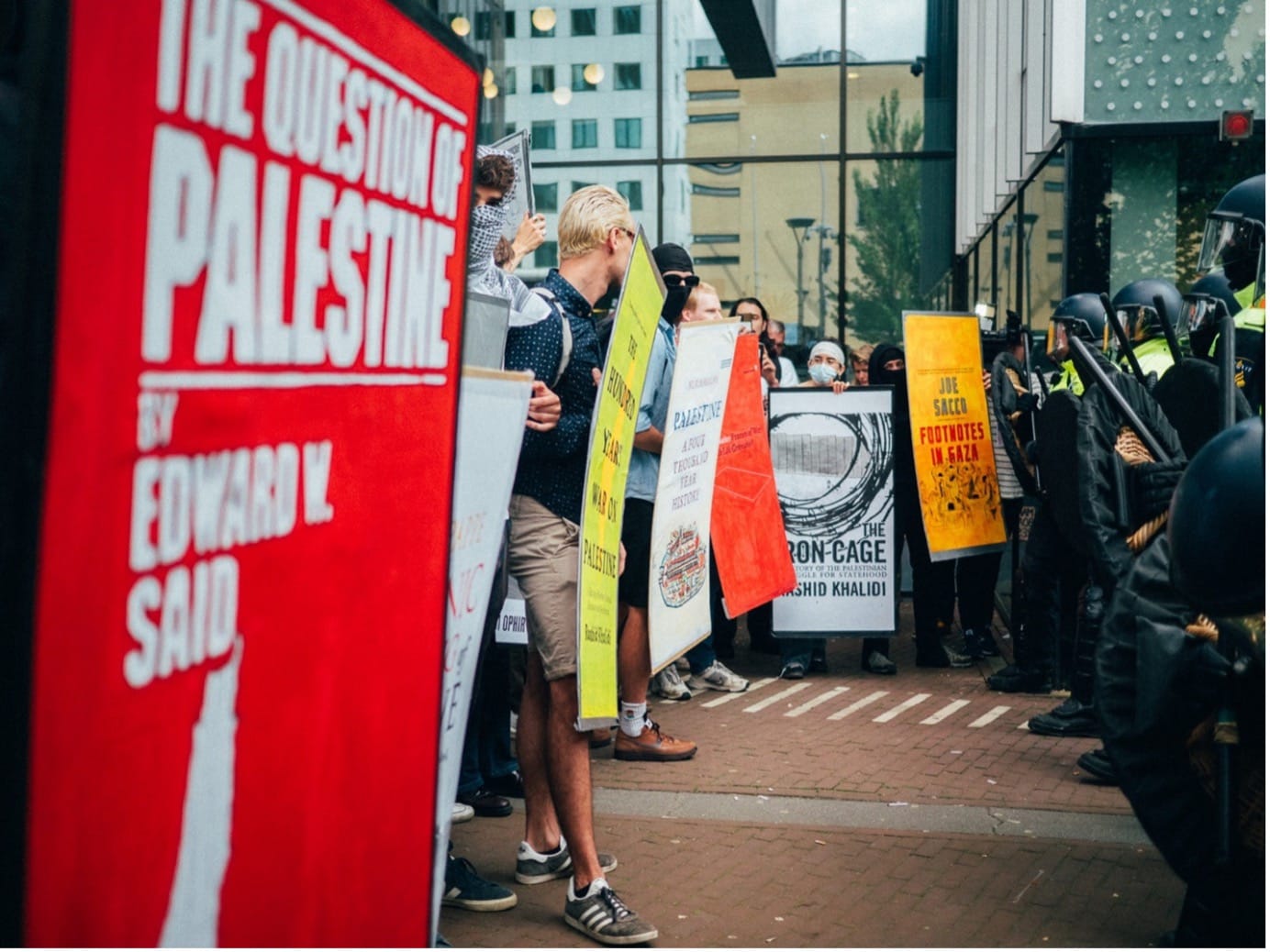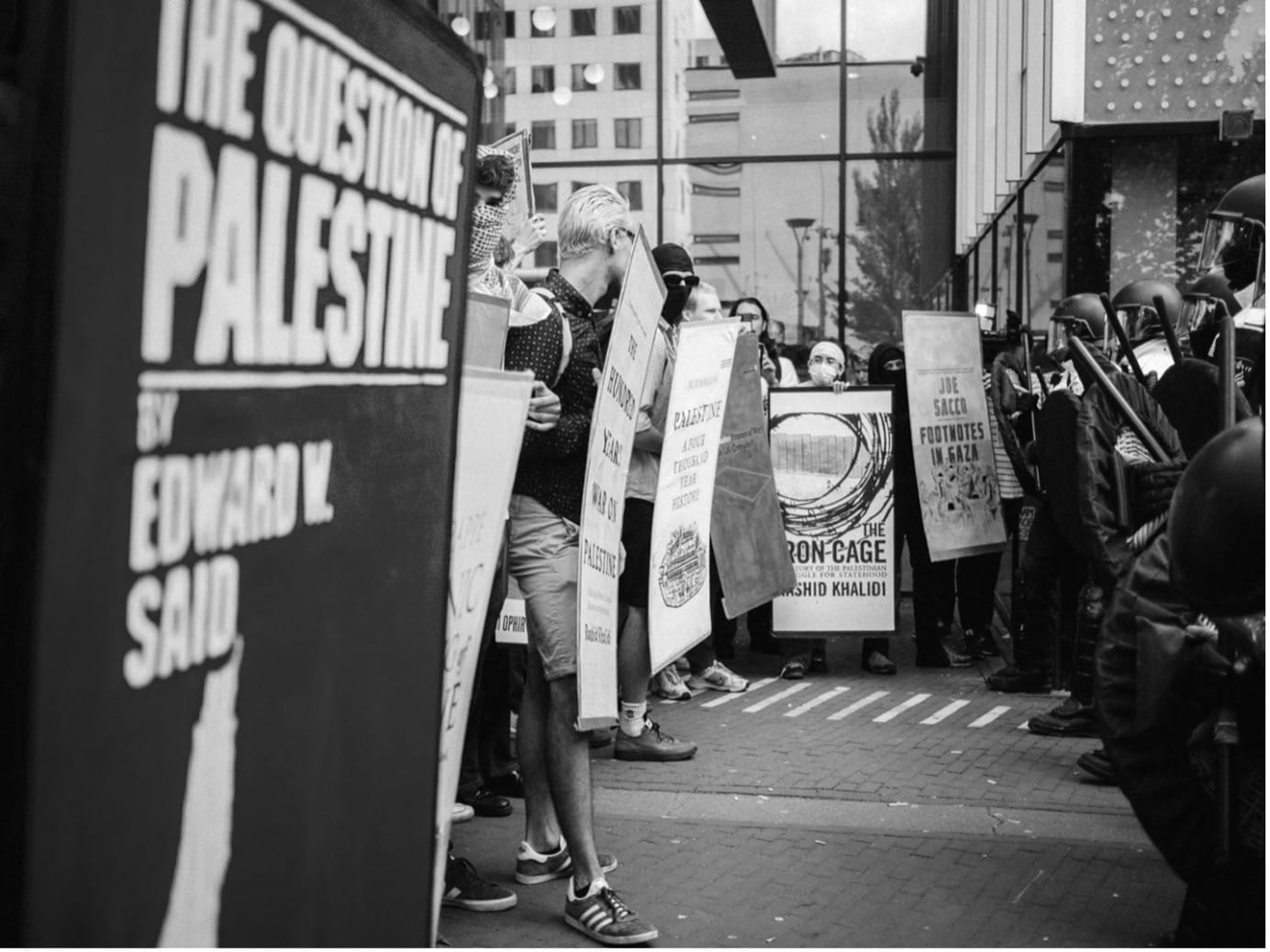How do we as educators tasked with creating and fostering active learning, critical thinking and civic engagement — the core aims of higher education institutions — continue our work in light of the gratuitous police violence that such institutions have unleashed and enabled on their students and staff over the past weeks?
We are based at the University of Amsterdam (UvA), one of the higher education institutions in the Netherlands that has not allowed a students’ Palestine Solidarity Encampment. Student-led protests and encampments have spread across the Netherlands, with the first encampment taking place on the premises of UvA’s Roeterseiland campus on the 6th of May 2024. Our students, as students in other universities, demanded that the UvA join the academic Boycott, Divest, and Sanction Campaign through the following steps: disclosure of its ties to institutions and companies complicit in genocide, divestment from such institutions and corporations, and the cutting ties with Israeli academic institutions that participate in genocide. Within its first 24 hours, the encampment was met with a violent response, whereby riot police attacked and arrested over 120 students and staff, bulldozing the camp. Following this, and throughout the month of May, there have been a series of occupations, protests, and further repression taking place at the UvA.
Our university claims to offer students “the in-depth knowledge and expertise they need to contribute to society in a conscientious, sustainable and critical manner,…a rich and dedicated learning experience that will enable them to fulfill their personal potential and put their talents and capacities to optimal use,…the knowledge and skills they will need to flourish in a rapidly evolving society and work environment, while acting as responsible global citizens, …and to strengthen our students’ critical thinking skills and open intellectual attitude.” (UvA Vision on Teaching and Learning)
On the one hand these are the claims and aspirations we are obviously committed to. On the other hand, the actions of the UvA profoundly insult and infantilize students and staff, suggesting that we do not have the capabilities to analyze, understand and act on issues of global concern. A university, its classrooms, syllabi, and carefully designed and expertly delivered lectures are intended to foster critical thinking and to provide students with the analytical and moral skills that will be of use in the world beyond the walls of the educational establishment. These skills, we are told, are fundamental for civic engagement, a democratic public sphere, and global solidarity. Therefore, we ask what is the point of venerating and teaching these skills when the exercising of such is so brutally repressed by the very same institution that places them at the core of its mission? How do we as educators continue to function as normal as the façade of the university crumbles around us?
These questions are all the more urgent and prescient given the context in which such actions have taken place: the ongoing genocide in Gaza where all universities have been deliberately reduced to crumbling rubble by the Israeli military. Indeed, the scholasticide against Palestinian education in Gaza through the wanton destruction of universities, archives and libraries, and the murder of 300 educators and over 6,000 students is an attack on Palestinian civic life now and in the future. It is an attack on Palestinian civic life exactly because universities play such a vital role in nurturing the abilities needed for a flourishing society, whether that is training future doctors, engineers, public servants, journalists, artists, writers, poets, or teachers, universities are central to and for Palestinian life.
Sadly, the police violence at the UvA over the past week is not an isolated incident. The authorized use of police violence has been the response from university administrators at countless other universities around the world in response to the Palestine Solidarity Encampment movement. Instead of being repressed, these student encampments should be valued as spaces of democracy and active learning. They foster community and solidarity and are based on principles of non-violence, antiracism and care. As such, they act as laboratories where young people can enact radical and alternative ideas for living together, learning about and practicing democracy as they do so, challenging at the same time moral and political apathy. A healthy democracy requires active engagement. Democracy is threatened by apathy. Therefore, a university that tells its students that apathy is the preferred course of action is a danger to democracy itself.



